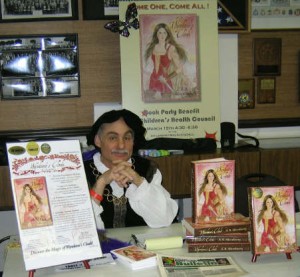Reading for Writers
To improve your writing, pretty much everyone agrees that you should write a lot and read lot. Some people maintain that you should read both good writing and bad writing. The argument for the latter is that it will help you recognize what doesn’t work. The premise goes that if you can identify what’s wrong in someone’s writing, then you will avoid making similar mistakes. I think this approach has limited value. Knowing what isn’t working tells you little or nothing about how to produce something that is working. The only way you can identify what does work is … (trumpet fanfare) … to read good writing. The underlying principle for this goes beyond writing. If you want to do anything well, you want a model of that thing. A model of what isn’t that thing is no model at all!
What Psychology Says About the Matter.
I’m a practicing psychologist as well as a writer. When I work with clients, I ask them what their goals are. They might tell me that they want to be less depressed or less anxious, for example. Unfortunately, that’s rather vague. If they can’t see how they will look when they change, it will be hard for them to do the things that will help them act differently and achieve the goals they’re seeking. It would be like trying to hit a target with an arrow, but not knowing where the target is. One of the first things I ask them to do, then, is to see what their goal looks like in the positive. So we flip what they’re saying around, and they define what they will look like, how they will act, what they will do when they are no longer depressed or anxious.
Turning Negatives into Positives
In writing, rather than saying, “I won’t have weak characters,” instead say, “I will construct characters that have a secret, a powerful inner yearning, or flaws that hinder them from their goals.” Rather than saying, “I won’t write boring descriptions,” say, “I will write descriptions that sets a mood, conveys subtext, or adds a symbolic or metaphorical layer to the story, as I’ve noticed my favorite writers do. Or, “I will right descriptions that are tight and spread out across a scene, because I’ve noticed that keeps the action moving.” (Faulkner provides a good example of this technique.)
Who’s Got Time?
For most people, reading time is limited. Even if you’re a full time writer and can find two to four hours to read, do you want to spend those precious moments during the day suffering through bad writing? I’ll read twenty percent of a book, giving it every chance to hook me in. But if I’m bored, uninterested, uninvolved, feeling nothing for the characters a fifth of the way in, I chuck it for something else.
Conclusion!
So read the best work you can get your hands on, the great writers, the great books, new and old. Learn from the masters, and your writing will improve. Read what inspires you, enchants you, what shows you a new way to do something. Read what you love—not what you hate—and that love will infuse your writing with excitement and energy.
P.S. For an inspiring presentation for young writers, I’m available for school visits. Learn more here.

A contemplative A. R. Silverberry at SacCon


